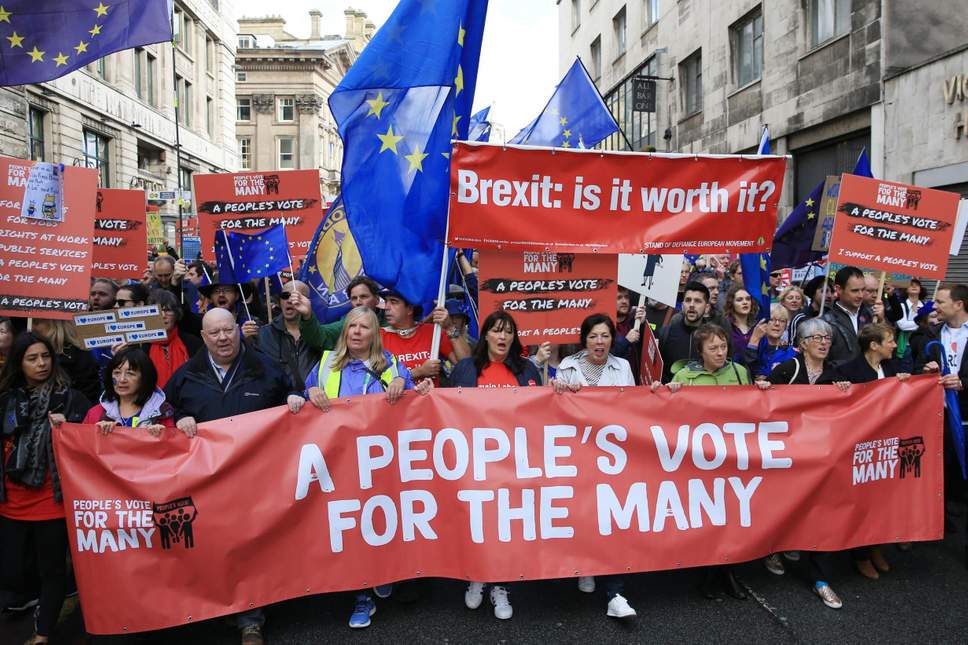Love it or hate it, Brexit is everywhere. Arguably the most defining political issue of our time, it is impossible to escape.
The People’s vote campaign is seeking a referendum on the final Brexit deal, with one choice on the ballot being to remain in the EU. The campaign is run by an alliance of remain groups; one of which is a student-led organisation who are partnering with LUU to provide free transport to the People’s Vote March on the 20th October.
Want to get involved with the People's Vote March on 20 October? Along with @OFOCBrexit we're helping to arrange free coach travel to London from Parkinson Steps, so you can get involved. Find out more and book a place: https://t.co/YZfnOqNRwO pic.twitter.com/V4ZE9V9Yyo
— LeedsUniversityUnion (@LeedsUniUnion) October 13, 2018
Chris Morris, Union Affairs Officer at LUU, said “since 2016, there are 1.4 million more young people who can vote. Denying them the chance to have their say would be anti-democratic and leave them lumped with a Brexit they did not vote for. So, have your voice heard, take back control from Parliament and join the march on Saturday 20 October to make sure the voice of the students is loud and clear.”
Also supporting the march is The Independent newspaper, who are running their own ‘Final Say’ petition calling for another referendum, which has gained over 850,000 signatures on Change.org.
I can't be there on Saturday, but I absolutely would be. I believe that only a #PeoplesVote can provide a properly informed and democratic mandate for ALL SIDES, now we've assessed the facts and consequences. If it's still the people's will, then so be it. #PeoplesVoteMarch
— Stephen McGann (@StephenMcGann) October 18, 2018
At the last People’s march, on 23rd June 2018, almost 100,000 people turned out to march and listen to a range of speakers, including the Conservative Party’s Anna Soubry, the Labour Party’s David Lammy and leader of the Liberal Democrats, Vince Cable.
Organisers believe this march could be even bigger, with double the number of coaches expected from across the country. The Mayor of London, Sadiq Khan, will be speaking at the rally, with others to be announced in the coming days.
The march will start near Hyde Park in London, before making its way past Downing Street and then to Parliament square where the speeches will be heard.
Many celebrities are sponsoring coaches to take people to the march, such as Delia Smith, Alastair Campbell, Sir Patrick Stewart and historian Dan Snow.
The most important question is, of course, will the march work? With the Brexit negotiations coming to a head this week with crucial summits coming up in Europe, it remains to be seen whether the UK and EU can negotiate a deal and get past the thorny issue of the backstop for the Irish Border.
However, even if a deal can be reached, perhaps the biggest problem for the Prime Minister will be the House of Commons and her own Government. More cabinet resignations are certainly a possibility which would be a big blow to the May Government, but getting a majority for the deal in Parliament seems to be the biggest challenge.
The European Research Group, led by Jacob-Rees Mogg and the DUP, who prop up Theresa May’s Government, both have serious concerns about the deal the Prime Minister might bring back from Brussels.
This alone would be bad enough for any Prime Minister, but when considering Conservative Remainers, Labour’s position not to back a deal unless it meets its six tests, and the fact she barely has a majority in Parliament, it seems getting a deal through Parliament will be a fierce battle.
Bearing all this in mind, perhaps the march on the 20th will influence those politicians in Parliament who want a People’s vote and see it as a way to break through the deadlock of the current Parliament. On the other hand, it may strengthen the resolve of leavers to leave the EU, whatever the cost.
Brexit comes down to one thing: isolation vs unity. Which do you want?
Stand up for your values and march with us for a #PeoplesVote tomorrow: October 20th, Park Lane, 12pm. pic.twitter.com/LnPK0Wgo02— Our Future, Our Choice (@OFOCBrexit) October 19, 2018
Matthew Plant
Image: [Standard]

